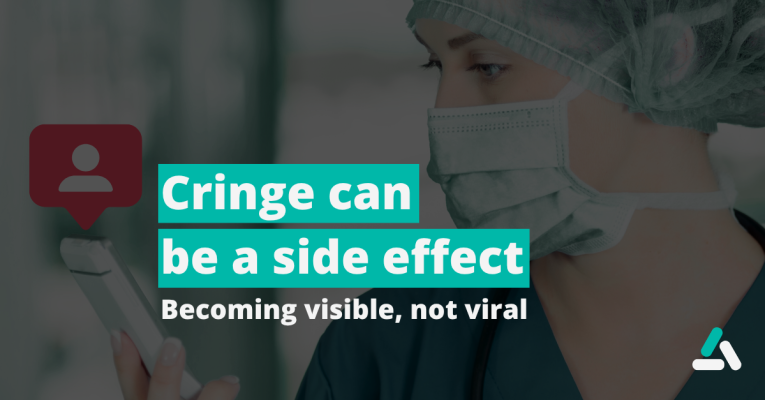In today’s world, patients don’t just look up symptoms online, they look up their doctors too. Before booking an appointment, almost half of patients search online for information about healthcare professionals, often checking several different sources. What they find can shape whether they choose you or move on.
At the same time, misinformation is everywhere. Social media platforms are filled with so-called “health influencers” sharing advice that’s incomplete at best and dangerous at worst. Yet these voices often reach thousands, even millions, of people, simply because they show up where patients are looking.
This creates a challenge for doctors and consultants: if you’re not online, your patients are still getting information, but it may not be from you.
Patients trust doctors most
Despite the noise online, the good news is clear: 95% of adults say they trust doctors as a source of health information. That trust is our profession’s greatest asset. But it only helps if we are visible.
Actively sharing your knowledge online is not about becoming a social media influencer, it’s about making sure your expertise reaches the people who need it most.
The professional payoff
Doctors who maintain a professional presence online often find it helps them in surprising ways:
- Building stronger patient relationships – patients feel reassured when they can see your expertise outside the consulting room.
- Saving consultation time – answering common questions online means patients come better informed, reducing time spent undoing misinformation.
- Career opportunities – from speaking invitations to media appearances, visibility can open doors.
- Practice growth – when patients search online and find clear, credible information in your name, they’re more likely to book with you.
Overcoming the barriers
Many consultants hesitate to get started because of common concerns:
- “It will undermine my credibility” – in reality, credibility comes from consistent, accurate content.
- “I don’t have time” – a single short video or article a month can make a huge impact.
- “I don’t know what to post” – think about the top three questions patients asked you this week. Start there.
Remember, your first post will be your worst post, and that’s fine. The more you share, the better you’ll get.
A professional responsibility
Social media isn’t just about visibility. It’s about responsibility. Patients are already online searching for answers. If the most trusted voices, doctors and consultants, stay silent, misinformation wins.
By sharing your knowledge consistently, even in small ways, you:
- Protect patients from harmful advice
- Strengthen your own reputation
- Contribute to a more informed public
Final thought
The future of medicine isn’t just in hospitals and consulting rooms, it’s online too. As doctors, we don’t need to go viral. We just need to show up. A simple, consistent presence can make all the difference.
Start small. Stay consistent. Share what you know.
Your patients, and your profession, will thank you.

